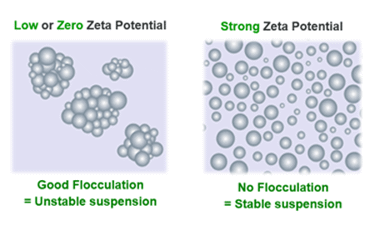Top 6 Reasons To Consider Zeta Potential
By Jeff DeNigris, Product Manager, and Ana Morfesis Ph.D., Malvern Panalytical

Turbidity and NOM in the source water feeding a drinking water purification plant, particularly a surface water source, fluctuates over time. This continual change may require adjustment to the coagulant dose, pH or polymer addition to enable the flocculation process to work efficiently. Careful management of the coagulant dose with accurate and timely monitoring can impact the overall plant performance. Monitoring this based on zeta potential, a scientific measurement of the electrical potential charge between particles, provides reliable and relevant data. Particle charge neutralization is needed to enable a strong floc to form and allow the entire process to run smoothly. Here are the top 6 reasons to consider a laboratory zeta potential system for coagulation dose control.
Get unlimited access to:
Enter your credentials below to log in. Not yet a member of Water Online? Subscribe today.
